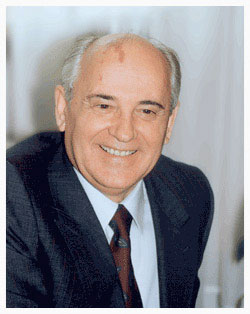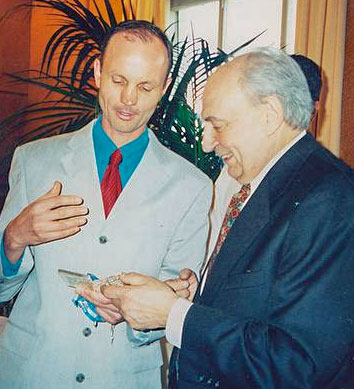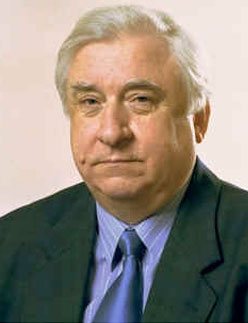Vladimir Petrovsky
The Master Diplomat
This book gives insights into the life of Vladimir Petrovsky, an important figure in the political landscape of the second half of the 20th century. His diplomatic career took him from the ideologically confined Soviet system to the pinnacle of internationalism. The book highlights his significant contributions to many key processes, such as the Helsinki Final Act, Mikhail Gorbachev’s perestroika, disarmament and the strengthening of the United Nations. Petrovsky describes the necessary tools to create a more inclusive world, a world where individual and collective security, development and self-determination are at the core of all deliberations and actions.
These pages bring to light the extraordinary combination of capacities and qualities in an exemplary global citizen: intellectual brilliance, integrity, wisdom, compassion. We gain access to his private life and activities beyond the sphere of politics. The tributes at the end of the book illustrate the deep and enduring personal impact of his life and work on statesmen, colleagues and friends.
Vladimir Petrovsky envisioned a world where security and peaceful coexistence are a reality, whereunity flourishes in diversity, where the feeling of theoneness of all humanity prevails.
In Vladimir Petrovsky’s words:
“The time has come to develop a planetary way of thinking which presumes the definition of national interest within the global context.”
– Vladimir Petrovsky


Foreword by
President Mikhail Gorbachev
Serving Individuals and Humanity
I wholeheartedly introduce this book and this man. Vladimir Petrovsky was a prominent figure of our time. A diplomat, a politician, a humanistic thinker, he combined service for the welfare of his Motherland with concern for the future of all humanity. At the very beginning of his career, he had the opportunity to become acquainted with the issues handled by the United Nations. He ended his work as a diplomat after occupying, for a decade, the second most important position in the administration of the world organization, that of Director-General of the United Nations Office at Geneva.
I myself got to know Vladimir Fyodorovich very closely during the period of perestroika in our country when, in 1986, he became Deputy Minister of Foreign Affairs of the USSR. Those were the times of renewal in our diplomatic service because of the ambitious new goals our country had set for itself. Its foreign policy changed profoundly. A transition to a new kind of political thinking was needed. This requirement was a logical consequence of the internal perestroika. It was not possible to implement plans for modernization, for transfer to using new technologies, and promote new economic relationships without building up international cooperation. Another incentive for the new political thinking was the awareness of the scale of the nuclear threat, which could bring humankind to the verge of extinction. It was no coincidence that at that time experts and politicians engaged in an animated discussion about the establishment of a new world order. Its governing principle would be policymaking based on the balance of interests and the development of cooperation, rather than on force and the imposition of vested interests on others.

Editor’s Introduction
There are a few reasons why this book was compiled.
When Vladimir Petrovsky passed away in 2014, many felt that a rare personality had left this earth—somebody with a unique combination of an academic background, a practical approach, a humanistic view, a visionary spirit, a positive and optimistic outlook and a deep longing to bring the human family closer together.
Having worked closely with him for a number of years, I felt that his life and work, his vision and personality, his achievements and recommendations could serve as an inspiration to current and future generations and contribute to a world of peaceful coexistence, trust, solidarity and cooperation.
As much as the book is intended for the future, it also offers ample insights into the history of the last fifty years and the huge transformations of political, diplomatic and even personal landscapes that have taken place in this time.
Tributes to Vladimir Petrovsky

Vladimir Petrovsky led a full and accomplished life. He dedicated his career to public service—first to the people of Russia, and then to the wider international community and the United Nations.
Vladimir was an individual whose vision of the world revealed a belief in our common humanity—a quality which is all too rare, but precious.
Living through one of the tensest periods of international relations, he was the quintessential diplomat: a strong and consistent voice for dialogue, playing a key role in the complex diplomatic challenges of the Cold-War era.
The United Nations and the international community of Geneva were shaped
by his vision of a city of peace and diversity, where people from all corners of the world work in partnership for a fairer, more secure world.
Kofi Annan
Secretary-General of the United Nations, 1997-2006

I had a great affection and sincere friendship with Vladimir Petrovsky.
He was a man devoted to encounter, conciliation and dialogue. His career is an example of courage and farsightedness.
Because of his vision and action I pay tribute to him. His example will remain.
Federico Mayor
Director-General of UNESCO, 1987-1999
Chairman, Foundation for a Culture of Peace

Our decades-long conversations on topics of international affairs always ended up in a friendly dialogue, during which he shared his unorthodox views on the past and the future—views which were based on fundamental theoretical reflections. After such discussions, one could not but admire his sharp world outlook. He was one of the best people of Russia.
V. V. Zhurkin
Academician, Founder and Honorary Director, Institute of Europe, Russian Academy of Sciences

